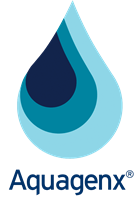Aquagenx Compartment Bag Test (CBT) Enables Vital Signs’ Field Teams in Tanzania and Ghana to Easily Collect Data on Water Quality and Obtain Rapid Results.
January 29, 2014, Chapel Hill, NC – Aquagenx, LLC, a provider of innovative microbial water quality testing products that detect potential health risks, is honored that its Compartment Bag Test is an integral tool in the Vital Signs Monitoring System to measure water quality in Africa. Vital Signs is an open access monitoring system that collects and integrates near-real time data on agriculture, ecosystems and human well-being to inform agricultural development decisions and monitor their outcomes.
Vital Signs needed a cost-effective, reliable way to collect data on water quality and conduct water testing in-the-field. They adopted the Aquagenx Compartment Bag Test (CBT) because it is designed for water quality monitoring in low resource settings.
In June 2013, Vital Signs began using the CBT to train their Tanzania field team in their protocols for collecting data on biomass, soils, crops and water. Their team included Vital Signs directors and staff from Conservation International, the Earth Institute, representatives from the Tanzania Forest Conservation Group and the TEAM Network. They were also joined by five Tanzanians to be trained as field technicians.
The Vital Signs team collected water samples from a stream in the CBT sample bottles, returned to their camp to run tests and incubated samples at ambient temperature for 48 hours. Test results showed high levels of E. coli bacteria in the water sampled.
Sara Barbour, Senior Coordinator with Vital Signs Monitoring System, says “We are impressed with the ability of the CBT to deliver rapid results without the need for a laboratory or supplemental equipment, and the test clearly contributes to our capacity to effectively collect data on water quality. The CBT will be a part of our water quality protocol for all Vital Signs’ field teams and regions.”
“Feeding the growing world population will require a 70%-100% increase in food production through agricultural intensification and expansion,” continues Barbour, “but the reality is that no country can achieve this goal if it doesn’t also work to sustain the healthy soils, fresh water, pollinators and forests on which people depend.”
Said Habibu, a Coordinator with the Tanzania Forest Conservation Group, says “The observation of E. coli during our water sampling exercise was a surprise to me. It made me realize possibly much of the water used by local people is not safe for consumption and the government has not put much concern in monitoring water quality in our rivers and watersheds. This can be one reason for waterborne diseases in many of the local communities in Tanzania.”
Vital Signs has also begun using the CBT in Ghana and will continue to use the test for ongoing water quality protocols.
“We are impressed with the Vital Signs Monitoring System, which is a perfect platform for the CBT” says Mark D. Sobsey, co-inventor of the CBT and a Kenan Distinguished Professor at the University of North Carolina Gillings School of Global Public Health. “In the same way data collected by the Vital Signs Monitoring System enables informed decisions for sustainable agricultural development, the CBT enables informed decisions about the safety of drinking water in the field for any drinking water source or supply, treated or untreated. The two are inter-related. It is commendable Vital Signs recognizes the need for ongoing water quality monitoring, and we are proud they use the CBT to monitor for bacteriological quality.”
Recognizing the need for better data and new tools to guide sustainable agricultural development and ensure resilient livelihoods and ecosystems, the Vital Signs Monitoring System was created in 2012 by Conservation International, together with the Earth Institute, Columbia University and the Council for Scientific and Industrial Research in South Africa with a grant from the Bill & Melinda Gates Foundation.
The Aquagenx CBT is a portable water quality test kit that lets anyone, anywhere determine if drinking water contains E. coli bacteria and poses a health risk. No electricity, cold chain, laboratories, expensive equipment or trained technicians are needed to use the CBT. Water quality testing and monitoring are done in simple steps with easy-to-score, visual, color change results.
Founded in 2012, Aquagenx has received awards and honors for the CBT, including the USAID Pioneers Prize Honorable Mention 2013 and a LAUNCH Water Innovation Prize 2010. The CBT was recently approved by the Government of the Philippines Ministry of Health to assist with post-disaster restoration of critical water services following Super Typhoon Haiyan. The test was also featured by USAID on the cover of their 2013 innovations catalog, “The Catalog: Version 1.0.”
About Aquagenx:
Aquagenx provides innovative water quality testing products that detect potential health risks and helps eliminate the millions of annual deaths due to contaminated drinking water. The Compartment Bag Test (CBT) is a portable, simple, microbial water test that addresses the needs of low resource, underserved markets. It has versatile applications for low resource settings and household level testing by individuals, government agencies, NGOs, water utilities and disaster/emergency responders for ongoing water quality monitoring.
Aquagenx and the CBT are the result of groundbreaking research and development led by Dr. Mark D. Sobsey and Dr. Ku McMahan at the University of North Carolina Gillings School of Global Public Health.
